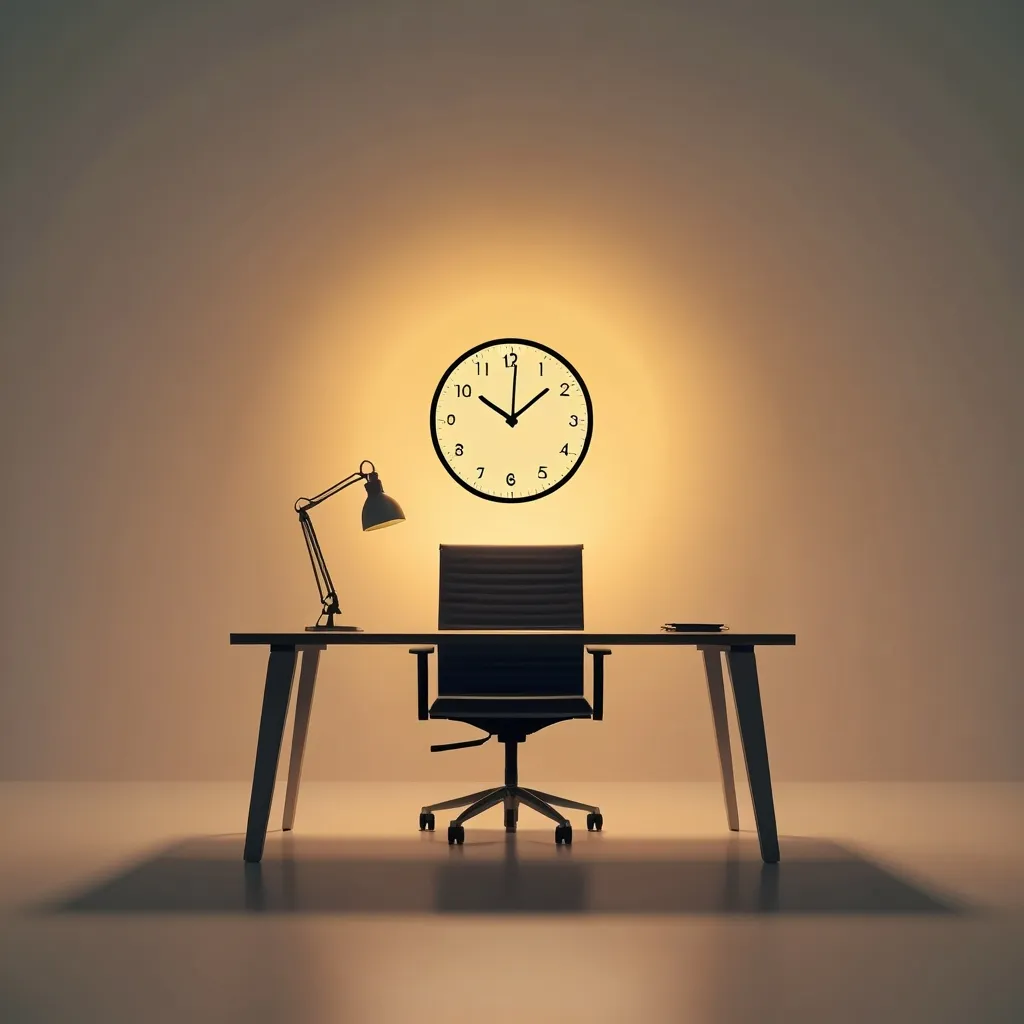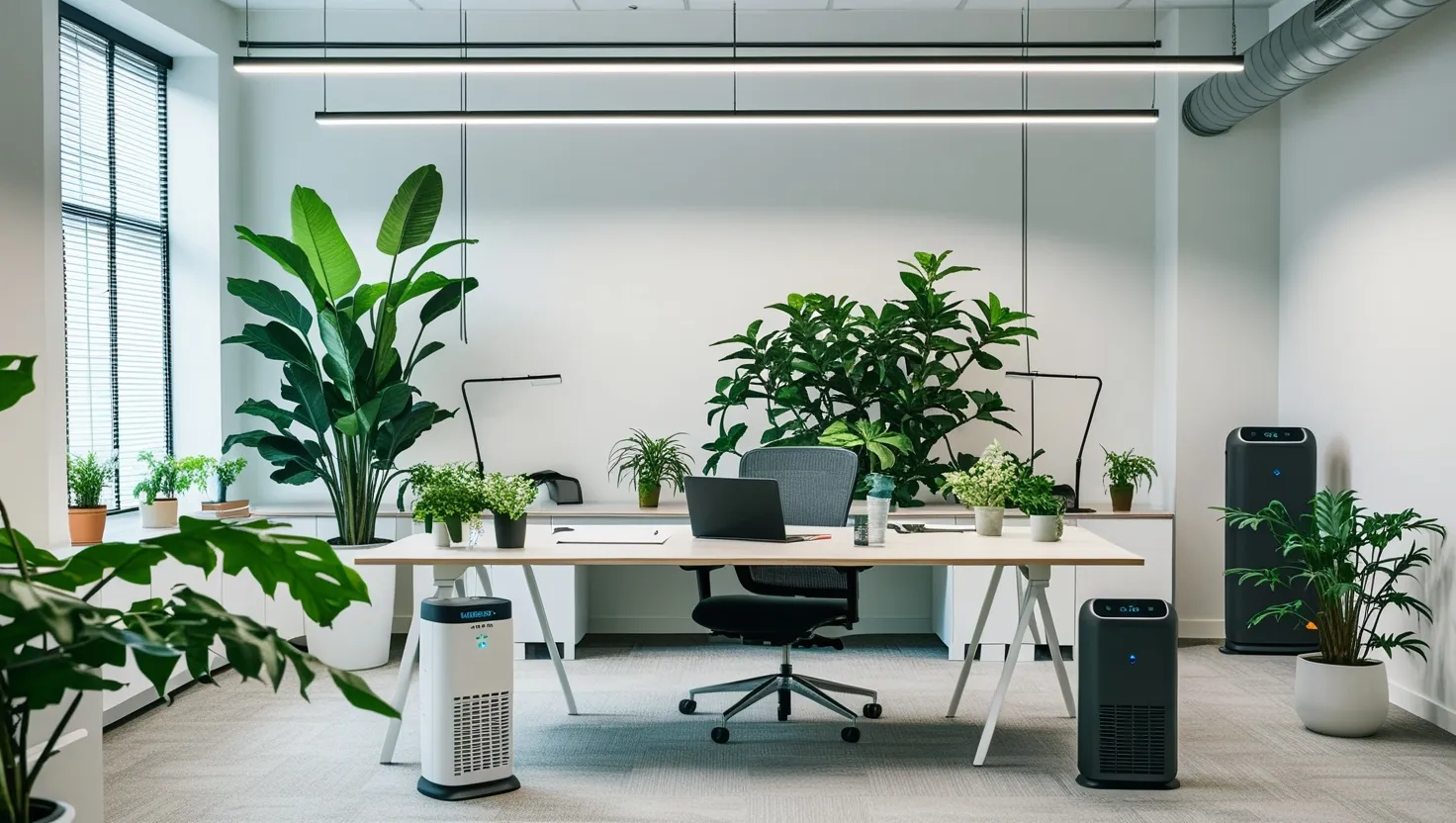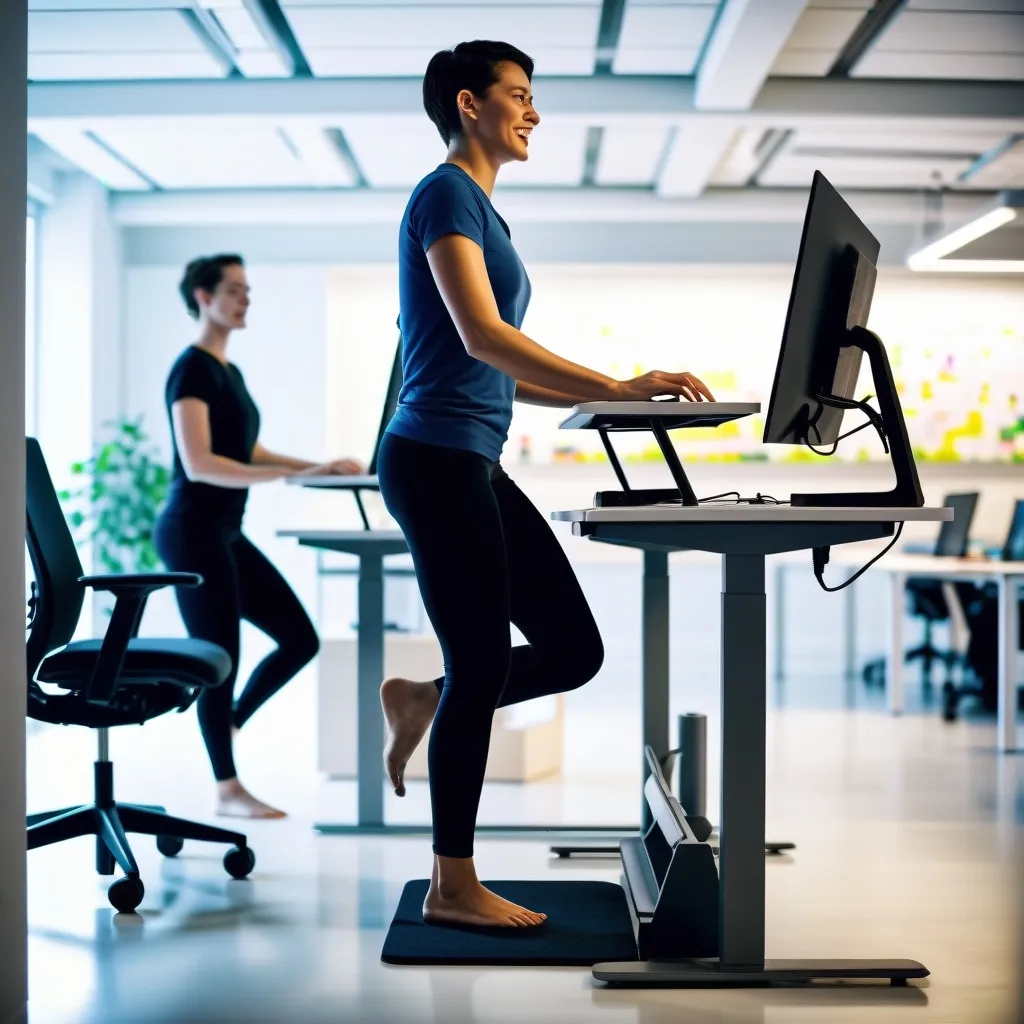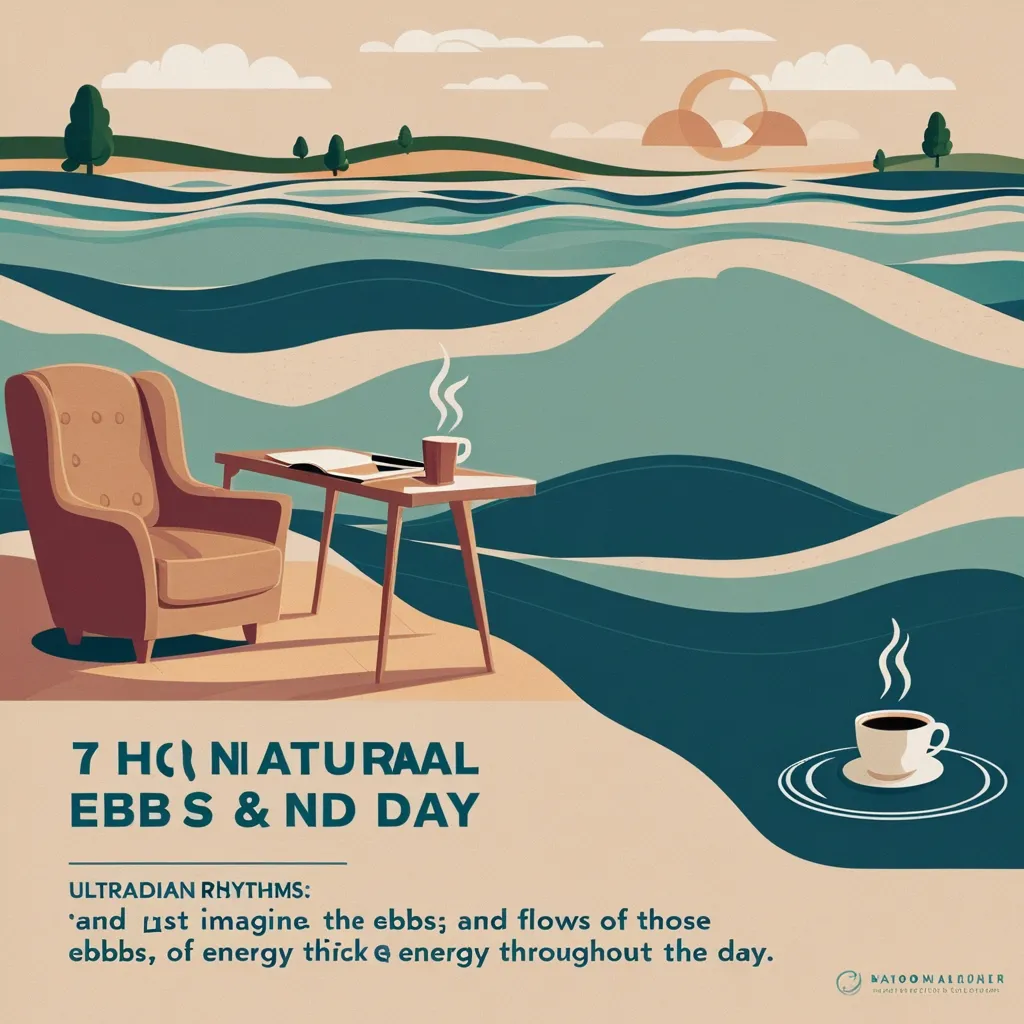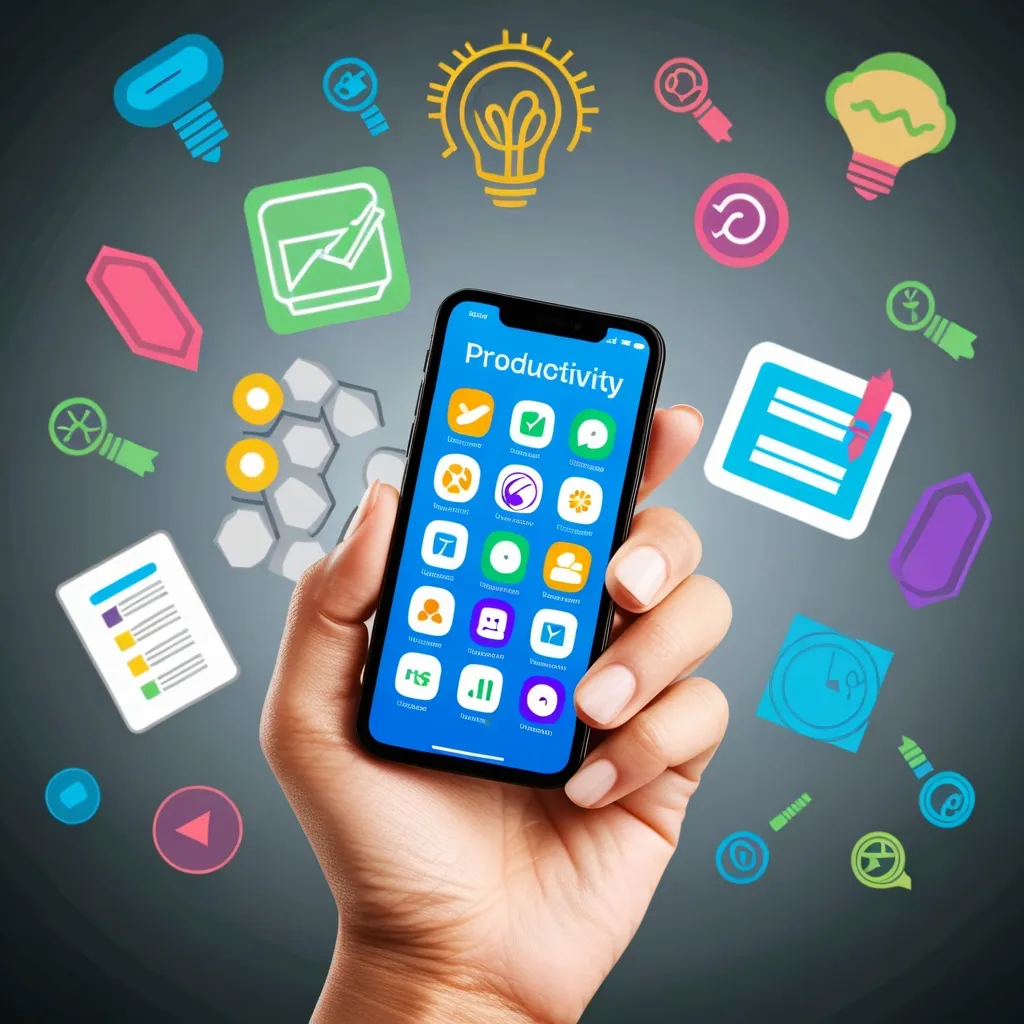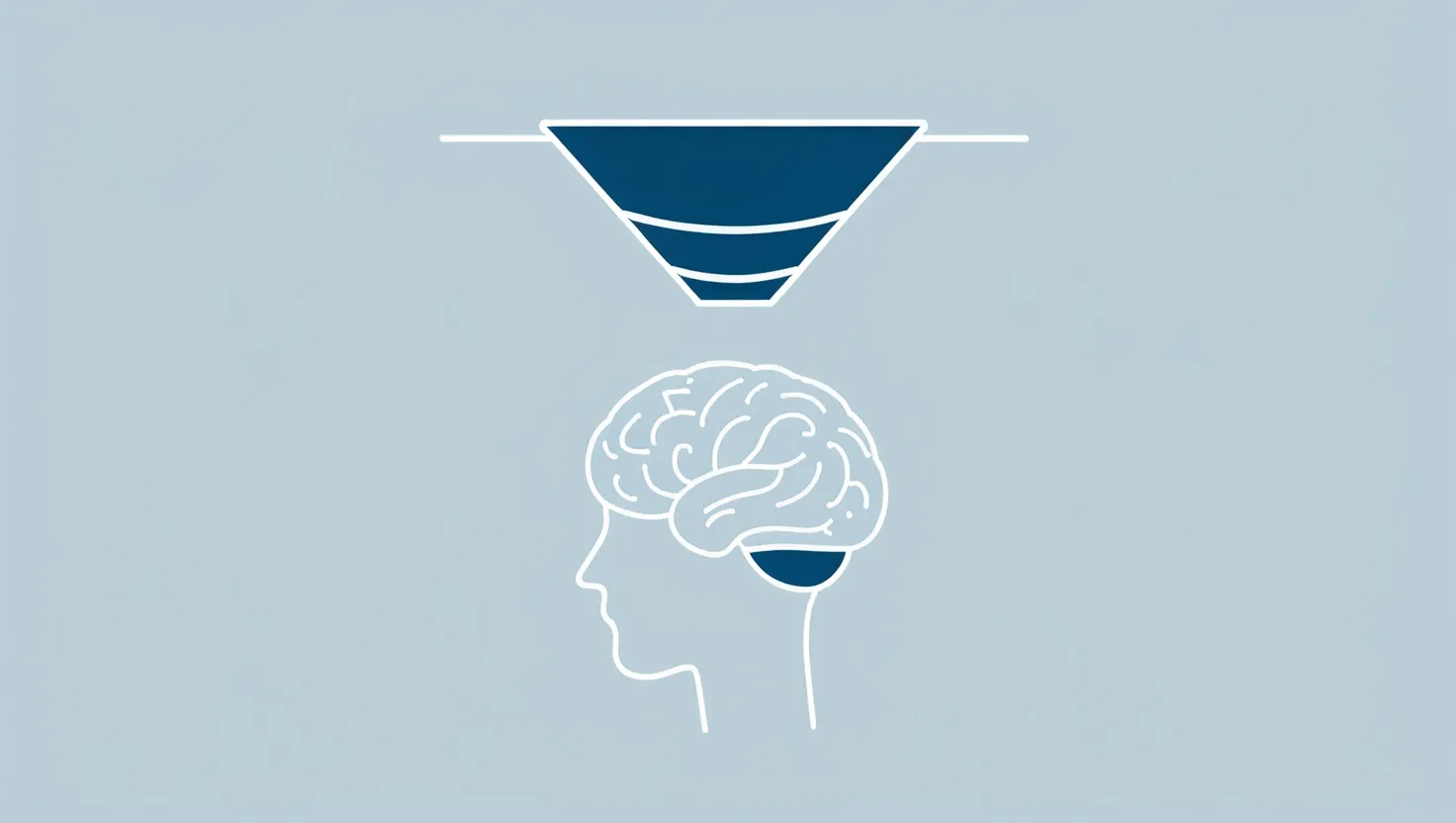The Afternoon Slump: Why Stopping Work at 3 PM Might Boost Your Productivity
Ever found yourself staring blankly at your computer screen around 3 PM, wondering why your brain’s turned to mush? Don’t worry, you’re not alone. Tons of us hit a productivity wall in the late afternoon, and here’s a wild thought - stopping work at 3 PM might actually help you get more done overall.
Let’s talk about our body’s natural rhythms for a sec. We’ve all got these internal clocks that mess with our energy levels throughout the day. For most of us, the early afternoon (think 12 PM to 3 PM) is when we’re feeling pretty sluggish. Scientists call this the “trough” stage, and it’s when our focus takes a nosedive. It’s like our brains are saying, “Nope, not doing anything productive right now!”
Now, you might think chugging coffee or taking a bunch of breaks will help, but honestly? It’s like trying to swim upstream. Your body’s gonna do what it wants to do. Instead of fighting it, why not work with it?
Here’s the thing - not everyone’s a morning person, and that’s totally fine. Some folks hit their stride later in the day. But here’s the kicker - a whopping 71% of workers agree that late afternoon (3 PM to 6 PM) is when they’re least productive. So even if you’re not a morning lark, chances are you’re still not at your best after 3 PM.
So, what can we do about this? Well, if you’ve got some wiggle room in your schedule, use it to your advantage. Try to tackle your toughest tasks before 2:30 PM when your brain’s still firing on all cylinders. After that, switch gears to easier stuff like answering emails or making quick phone calls.
One cool trick is to map out your day based on what you love and what you… well, let’s say “less than love.” By mixing it up between fun tasks and not-so-fun ones, you can keep your energy levels from totally tanking. Love writing? Do it in the morning when you’re sharp. Hate data entry? Save it for the afternoon when you’re already feeling a bit meh.
Now, let’s talk about the power of breaks and self-care. Instead of forcing yourself to work through that afternoon slump, why not take a breather? Go for a walk, read a book, or even sneak in a quick power nap. Just 15-20 minutes of shut-eye can do wonders for your brain without leaving you feeling groggy.
And here’s the thing - taking care of yourself isn’t just about relaxing. It’s about keeping your productivity game strong. By giving your brain a break, you’re basically recharging it for the next day. It’s like plugging in your phone at night - you want it fully charged and ready to go in the morning, right?
Let me tell you about this business coach I know. She decided to stop working on anything super important after 2:30 PM. Instead, she uses that time to pick up her kid from school and hang out with her family. She still catches up on emails and stuff, but nothing that needs her full brain power. Not only does this help her balance work and life better, but it also means she’s totally on point during her productive hours.
Or take this accountant I heard about. They noticed their brain just checks out after 3 PM. They tried everything - stretching, drinking water, mainlining coffee - but nothing helped. So instead of fighting it, they started doing their lighter tasks during this time and saved the number-crunching for earlier in the day.
Now, I get it - not everyone can just up and change their work schedule. But here’s an idea: why not talk to your boss about it? Raise some awareness about this productivity dip. You might be able to work out some flexible hours or scheduled breaks that line up with when you’re at your best.
If you can’t change your schedule right away, don’t sweat it. There are still ways to make the most of that late afternoon slump. Use it for simple admin stuff, run some personal errands, or just take a walk around the block. Every little bit of rest helps you come back stronger the next day.
You know what’s really cool? There’s growing evidence that shorter workdays and more flexible schedules can actually make us more productive. Some studies suggest that a 6-hour workday, or about 30 hours a week, might be the sweet spot for a lot of workers. Now, I know that’s not the norm yet, but it’s definitely food for thought.
Just imagine a workplace where you’re encouraged to take breaks and rest when you’re feeling low energy. It could lead to a more energized and focused workforce, which is a win-win for everyone.
So, next time you’re struggling to focus after 3 PM, remember - it’s not just you being lazy. It’s your body doing its thing. By working with this natural dip instead of against it, you might find you actually get more done in the long run.
Try it out. Next time you hit that afternoon wall, take a deep breath, step away from your desk, and do something that gives your brain a break. Read a book, take a walk, or just chill for a bit. You might be surprised at how much more productive you are the next day.
And hey, who knows? Maybe this whole “stop working at 3 PM” thing will catch on. We could be on the cusp of a workplace revolution here. Imagine a world where we all work smarter, not harder. Where we’re not judged by how many hours we sit at a desk, but by what we actually accomplish. Sounds pretty good, right?
So, let’s recap. Our bodies have these natural rhythms that affect when we’re most alert and productive. For most of us, that productivity takes a nosedive in the late afternoon. Instead of fighting it, we can work with it by scheduling our most demanding tasks earlier in the day and using the late afternoon for lighter work or even some self-care.
This isn’t just about being more productive, though. It’s about creating a healthier work-life balance. It’s about recognizing that we’re not machines - we’re humans with complex biological needs. By respecting those needs, we can create a more sustainable and fulfilling work life.
Think about it - how often have you pushed yourself to keep working late into the evening, only to find that you’re not really getting much done? Or worse, you make mistakes that you have to fix the next day? By giving yourself permission to stop working at 3 PM, you’re actually setting yourself up for success the next day.
Now, I’m not saying you should just clock out at 3 PM every day and call it quits. The idea is to be more mindful about how you use your time. Maybe you use that late afternoon lull to do some professional development - read an industry article, listen to a podcast, or take an online course. Or maybe you use it for some creative brainstorming - sometimes our best ideas come when we’re not trying so hard.
And let’s not forget about the impact on our mental health. Constantly pushing ourselves to be productive when our bodies are telling us to rest can lead to burnout, stress, and even depression. By listening to our bodies and giving ourselves permission to rest, we’re taking care of our mental health too.
So, how about giving it a try? For the next week, pay attention to when you’re most productive. Notice when your energy starts to dip. And then, instead of pushing through, try stopping work at 3 PM - or whenever your personal slump hits. See how it affects your overall productivity and well-being.
You might be surprised at the results. You might find that you’re actually getting more done, even though you’re working fewer hours. You might feel more energized and motivated. You might even start to enjoy your work more.
Remember, productivity isn’t about how many hours you work. It’s about what you accomplish in those hours. By working with your body’s natural rhythms instead of against them, you can accomplish more in less time - and feel better doing it.
So here’s to stopping work at 3 PM. Here’s to listening to our bodies. Here’s to working smarter, not harder. And here’s to a future where we value quality of work over quantity of hours. Who knows? We might just revolutionize the workplace in the process.
